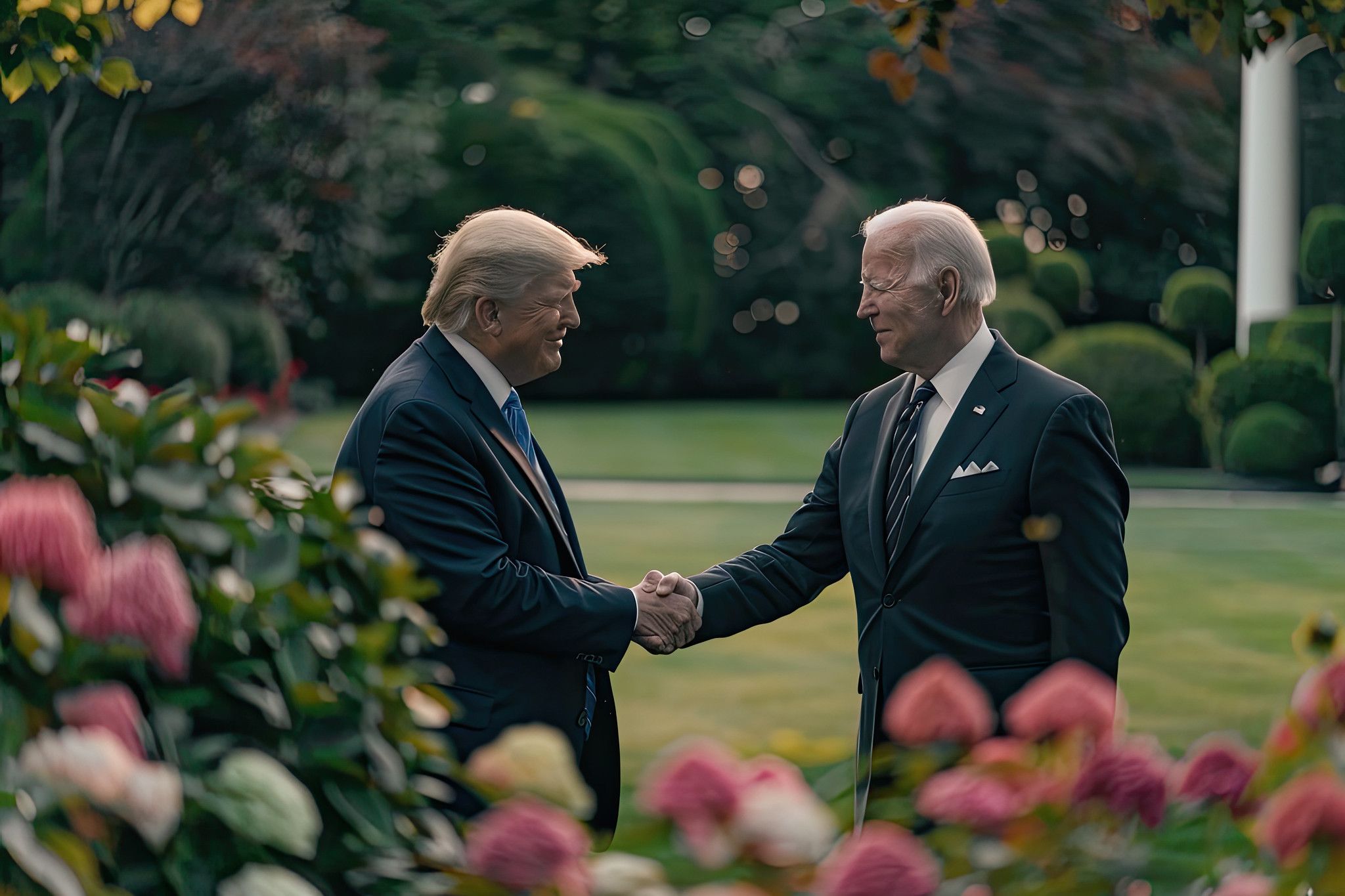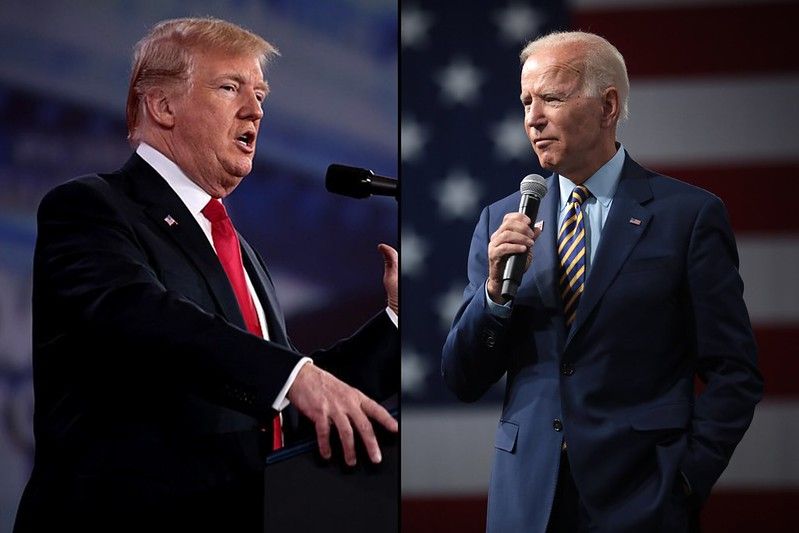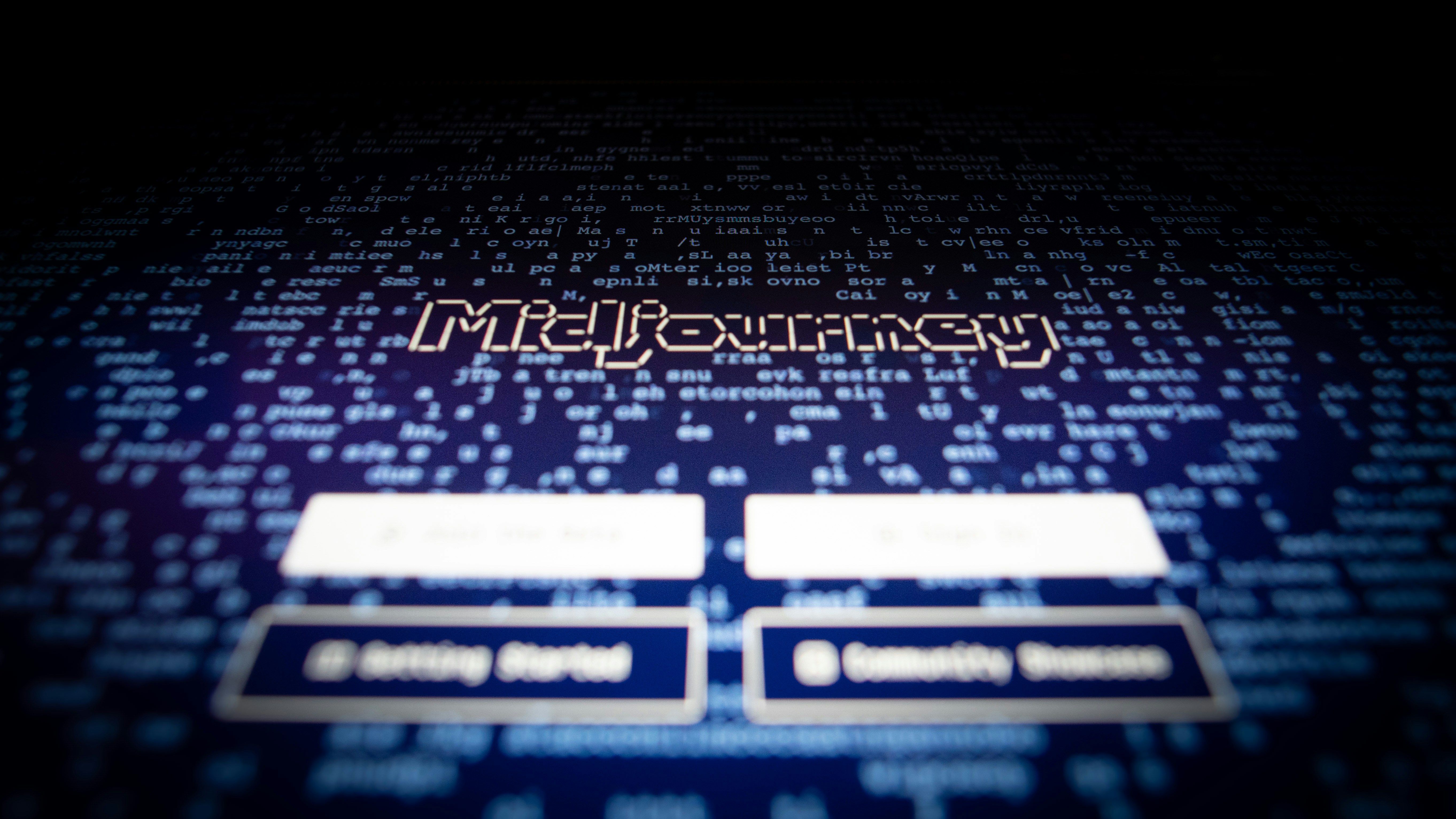The intersection of artificial intelligence and politics is once again in the spotlight as Midjourney, a popular AI image-generator, has implemented a significant policy change. In a move aimed at curbing the misuse of its platform for creating misinformation, Midjourney has blocked the generation of images featuring key political figures, President Joe Biden and former President Donald Trump, as the 2024 U.S. presidential election approaches. This decision shows the growing concerns around the potential of AI technologies to influence political processes.
Midjourney's Decision

"Trump und Biden geben sich die Hand" by ccnull.de Bilddatenbank is licensed under CC BY-NC 2.0.
The announcement and immediate policy changes
In a significant turn for AI-generated media, Midjourney, the artificial intelligence image generator, has implemented a new policy that restricts users from creating visual content featuring President Joe Biden and former President Donald Trump. This action was announced in March 2024, amid the intensifying political landscape as the U.S. presidential election approaches. Chief Executive Officer David Holz described the restriction as a preemptive measure, aimed at curbing the misuse of the tool for spreading election misinformation. Testing by the Associated Press revealed that prompts involving both political figures now trigger a "Banned Prompt Detected" notice.
Impact on users and accessibility of service
The decision has affected the wide user base of Midjourney, which operates on the popular social media platform Discord, where it boasts over 19 million members. Users who could previously generate images of political figures like Biden and Trump are now faced with warnings and blocked requests. This action has led to a mixed feedback, with some users voicing concerns over the sudden change and lack of communication regarding new policy implementations. The policy impacts the ease of use and prominently positions Midjourourney as a platform prioritizing ethical standards over unrestricted creative freedom.
Reactions and Implications

"Trump & Biden" by ekaden is licensed under CC BY-SA 2.0.
Public and expert reactions to Midjourney’s actions
The public and expert response to Midjourney's recent policy decision has also been varied. The Center for Countering Digital Hate pointed out that prior to this policy, Midjourney had fewer safeguards compared to other platforms in controlling content related to political figures. This has often led to the generation of misleading images. With the new changes, there appears to be a cautious endorsement from watchdog groups who see this as a step towards combating disinformation. However, the wider AI and tech community remains divided, with discussions concerning the balance between censorship and responsibility intensifying on forums and social media.
Comparison with other AI platforms and their policies
Midjourney’s actions contrast with those of other leading AI platforms like OpenAI’s ChatGPT and Microsoft’s Image Creator, which have implemented similar but not identical restrictions concerning political figures and election-related content. For instance, OpenAI has specific guidelines to prevent election disinformation, including declining image generation requests of real people during elections. Unlike Midjourney, which did not initially join a voluntary tech industry pact to combat AI-generated deepfakes, other platforms have been proactive in aligning with industry-wide measures to ensure the responsible use of AI in public discourse.
Long-term implications for AI and political discourse
The proactive measures by Midjourney are part of a growing trend where AI technology firms are increasingly held accountable for the impact of their tools on political discourse. The current climate indicates a shift towards more regulated AI operations, particularly as the technology becomes integral to everyday interactions and content consumption. By setting precedencies like this, Midjourne addresses immediate concerns over election integrity and reignites a vital conversation about the future role of AI in shaping political landscapes. As AI tools evolve, their influence on public opinion and political campaigns will necessitate more robust frameworks for governance and ethical usage.
Technical Insights and Challenges

Photo by Sanket Mishra / Pexels
Discussing the challenges in moderating AI-generated content
The moderation of AI-generated content, particularly in the context of political figures and election-sensitive materials, presents complex challenges. AI image generators like Midjourney have the power to create strikingly realistic and potentially misleading images. The rapid evolution of these technologies often outpaces the ability of developers and regulators to institute effective controls. Midjourney’s recent decision to block images of Joe Biden and Donald Trump as the U.S. election looms is a response to these moderation challenges, which shows us the difficulty in balancing the benefits of generative AI with its potential for abuse.
The problem is compounded by the ease with which such images can be disseminated across platforms, potentially influencing public opinion or spreading misinformation. Midjourney's CEO, David Holz, expressed his reluctance to constantly police political speech, which can be an exhaustive effort requiring substantial resources, especially for a small company with limited personnel. This is a typical issue faced by AI companies: the necessity to implement robust and proactive moderation policies without stifling creativity and freedom of expression within their user communities.
Emerging technologies in AI moderation and their effectiveness
As AI-generated content becomes more prevalent, emerging technologies aimed at enhancing moderation processes are being developed. These include advanced detection algorithms, enhanced user verification processes, and more sophisticated content filters that integrate machine learning to identify and mitigate potentially harmful content more efficiently.
However, the effectiveness of these technologies varies. For instance, while Midjourney and other platforms have implemented keyword blocking and user reports to filter content, recent studies have shown that these measures are often insufficient. According to the Center for Countering Digital Hate, Midjourney struggled more than other platforms to prevent the generation of election misinformation, failing in 65% of test cases to curb disinformation effectively.
Furthermore, the evolving nature of AI and digital content means that as soon as new moderation technologies are developed, new methods to circumvent them emerge. This ongoing cat-and-mouse game indicates the need for continuous innovation within AI moderation technologies. The need for a multi-faceted approach that combines technology, human moderation, and clear communication of policies to effectively manage the challenges posed by AI-generated content has never been more necessary.





